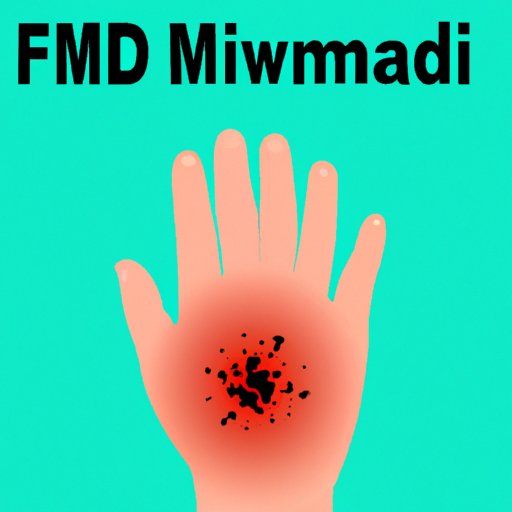
Introduction
Hand, foot, and mouth disease (HFMD) is a viral illness that often occurs in children, but it can also affect adults. It typically causes fever, sores in the mouth, and rash on the hands and feet. While most people recover from HFMD within a week or two, some may be concerned about the possibility of getting it again. In this article, we’ll explore the question, “Can you get HFMD twice?” and provide information on how to prevent its recurrence.
HFMD: Can You Get It Twice? Here’s What the Experts Say
Firstly, the good news is that most people who get HFMD develop immunity to the virus that causes it. This means that it’s generally unlikely to get HFMD twice. According to Dr. David Kimberlin, an infectious disease specialist, most people develop “lifelong immunity” to the virus after they recover from the illness.
However, it’s important to note that there are several strains of the virus that can cause HFMD, and developing immunity to one strain doesn’t necessarily mean you’re protected against others. In addition, there have been rare cases of people who have developed HFMD twice, usually due to exposure to different strains of the virus or a weakened immune system.
From Immunity to Recurrence: What You Need to Know About HFMD
So, why do some people get HFMD more than once? While immunity plays a crucial role in preventing HFMD, it’s not the only factor. Other possible reasons for HFMD recurrence include:
- Exposure to different strains of the virus
- A weakened immune system due to a medical condition or certain medications
- Re-exposure to the virus through contact with contaminated surfaces or infected individuals
Why Some People Get HFMD More Than Once and How to Reduce the Risk
While it’s not always possible to completely prevent HFMD recurrence, there are several steps you can take to reduce the risk, including:
- Practicing good hygiene habits, such as washing your hands frequently and avoiding close contact with others who are sick
- Cleaning and disinfecting surfaces regularly, especially toys and other items that young children frequently touch
- Avoiding close contact with individuals who have HFMD or are experiencing symptoms of the illness
- Avoiding exposure to potentially contaminated food and water sources
HFMD Recurrence: A Comprehensive Guide
If you’ve experienced HFMD once and are concerned about its recurrence, it’s important to know the symptoms to look out for. These can include:
- Fever
- Sores in the mouth, throat, or on the tongue
- Rash on the hands, feet, or legs
- Painful blisters or sores
- Fatigue or general malaise
If you suspect that you or someone you know has HFMD, it’s important to seek medical attention as soon as possible. A doctor can provide a proper diagnosis and recommend treatment options, such as over-the-counter pain relievers or antiviral medications in certain cases.
The Truth About HFMD Recurrence and What You Need to Know
There are several myths and misconceptions surrounding HFMD recurrence, such as the belief that once you’ve had it, you’re immune for life. While it’s true that most people develop immunity to HFMD after their first experience with the virus, there are still risks associated with contracting the illness again. It’s important to stay informed about HFMD and take steps to prevent its recurrence whenever possible.
Preventing HFMD Recurrence: Tips and Strategies to Keep Your Family Healthy
If you have young children or are concerned about the risk of HFMD recurrence in your household, there are several practical tips and strategies you can employ to keep your family healthy. These include:
- Encouraging good hygiene habits, such as frequent handwashing and keeping hands away from the face
- Keeping your home and other common areas clean and disinfected
- Avoiding close contact with individuals who are sick or experiencing symptoms of the illness
- Ensuring that your family members stay up-to-date on their vaccinations
- Promoting a healthy lifestyle through regular exercise, healthy eating habits, and adequate sleep
Conclusion
In conclusion, while most people develop immunity to HFMD after their first experience with the virus, there are still risks associated with its recurrence. However, by staying informed about the illness and taking practical steps to reduce the risk of transmission, you can help protect yourself and your family from HFMD and its potential complications.
Remember, if you suspect that you or someone you know may have HFMD, it’s important to seek medical attention as soon as possible. With proper care and treatment, most individuals recover fully from the illness and are able to resume their normal daily activities in no time.




